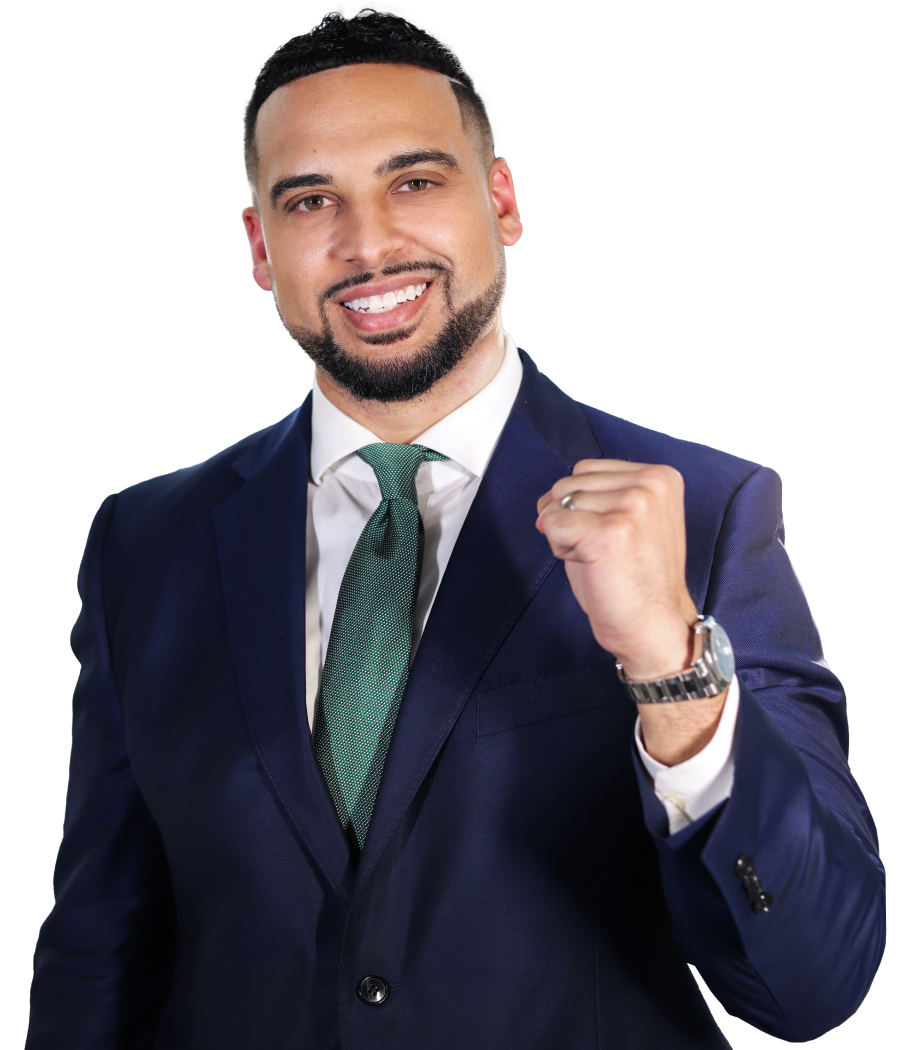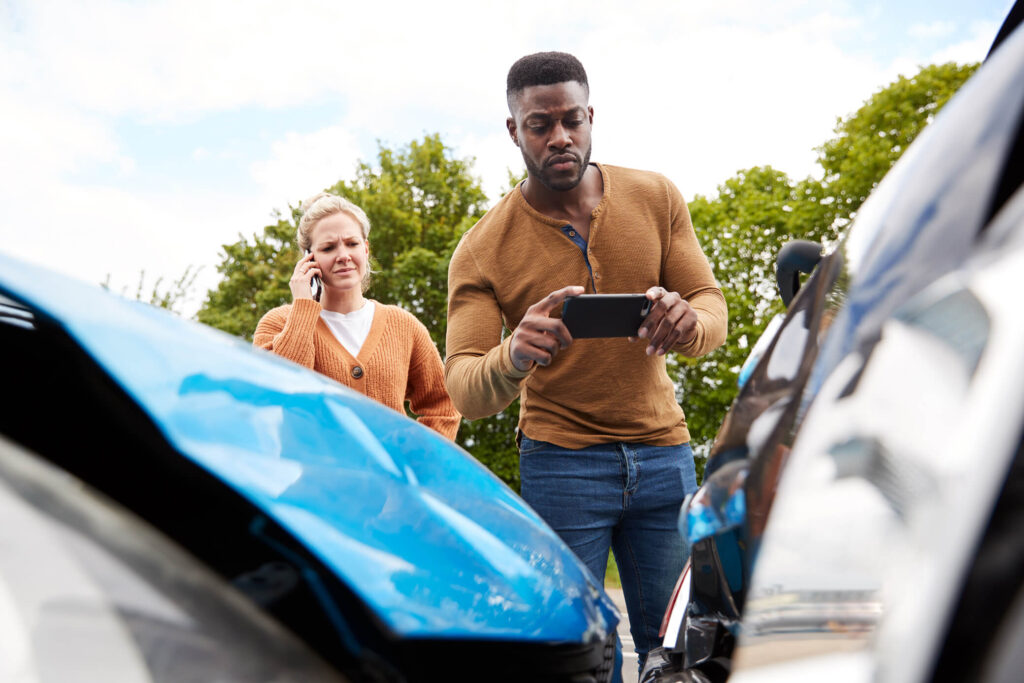
New Orleans Pedestrian Accident Lawyer
New Orleans Pedestrian accident lawyer NO FEE UNLESS WE WIN Free Consultation Recent Results SETTLEMENT $1,000,000 Injured as a

Walter Gabriel is the number one car accident attorney for people injured in automobile crashes in the Atlanta metro area and across Georgia.
Each year, car accidents cause thousands of deaths and permanent changes to many lives. In 2020, 42,060 Americans lost their lives to car accidents — up 8 percent from 2019, and the first increase in four years. Accidents often cause severe and lasting consequences, even if the collision is minor.
Common injuries that car accident victims sustain include:
Some of the most severe car accidents cause:
Those who are unfamiliar with the litigation process perceive car accidents as easy to handle. However, litigation complicates matters as the dispute develops.
In this guide, learn more about car accidents in Atlanta and why you need to hire an experienced attorney to fight for the compensation you deserve.

Common Scenarios for Car Accidents in Atlanta
Suppose a driver was texting when they collided with another motorist. This case might seem simple upon first impression. But there is more to litigation than proving the defendant is liable.
Walter Gabriel believes that, in cases like this, the total amount of compensation determines success. There is a difference between receiving $100,000 and $250 in damages.
Perhaps, in your case, the defendant challenges the severity of your injuries. Or the defendant believes you contributed (partially) to the accident, which then reduces your compensation. As you can see, if the defendant is aggressive, they could complicate your dispute.
You must work with an experienced Atlanta car accident lawyer who advocates aggressively on your behalf. Call the Law Firm of Walter Gabriel, LLC now or book a free consultation. You pay NOTHING unless you WIN.
Several risk factors often contribute to car accidents. Examples include:
Not all disputes progress in the same manner. Accident claims can give rise to arguments based on premises liability, product defect liability, and other theories. The damages available to an injured plaintiff may vary along a broad spectrum depending on the circumstances that caused the accident.
For example, a Georgia court may award compensatory damages and also punish the defendant with punitive damages. Georgia law allows for punitive damages under limited circumstances. (For example, drunk driving accidents where the defendant acted with a reckless disregard for safety.)
Before you consider damages, you must establish liability. (The other party must have caused your motor vehicle collision.)
The other driver might dispute liability if your vehicle was side-swiped or when there is no police report. So reach out to a car accident lawyer as soon as possible.
Once you establish liability, you may receive compensation for:
If injured, you may receive reimbursement for medical bills that you incurred after your accident. If a doctor says you need future medical treatment, you may receive an additional payment. Regardless, you deserve compensation for the physical pain you suffer. In our legal system, money is the only form of redress for your injuries.
How much money you receive for your pain depends on multiple factors. If you suffer emotional trauma (regardless of whether the trauma caused you to seek mental health counseling), you might receive compensation. Time missed from work is also a cause for damages. If you can no longer perform daily activities such as gardening or spending time with your children, you too might receive damages. Juries and courts typically award punitive damages to punish wrongful conduct.

Atlanta car accident lawyer Walter Gabriel can help. For car accident cases, we never charge a client out of pocket for any fees. So clients do not pay us any money before their case settles. a
To put it another way, when you sign up as a client with our firm, you will not pay us a single dollar. Once your case settles or reaches a jury verdict, our fee comes from a portion of your recovery. If your case does not result in a settlement or jury verdict, you will still not owe any fee. (A contingency fee agreement)
As long as the other driver is at fault for your car accident, you should be able to establish your entitlement to money for medical bills and injuries. Sometimes, the responding officer might believe the other driver to be at fault but decided not to issue a ticket. While the officer provides a neutral account of the accident, they are not an eyewitness.
Speak with an experienced Atlanta car accident lawyer to learn more. Call the Law Firm of Walter Gabriel, LLC today.
Regardless of whether you have an attorney, you are under no obligation to speak to the other driver’s insurance company. (You have nothing to benefit from speaking to the other driver’s insurance representative.)
If you don’t have an attorney when the other driver’s insurance company calls, tell the insurance rep that you do not wish to answer questions about your injuries or how the accident occurred. If you have an attorney, inform the insurance company that you have legal representation. The insurance adjuster should stop questioning you about the car wreck.
Yes, you should always see a doctor after a car accident. Our No.1 goal is to help you return your physical and emotional health to where it was before the wreck occurred. You may not know that you have sustained an injury until days (or weeks) after the accident occurred. A late visit to a doctor may harm your medical recovery.
When in doubt about whether you have a car accident case, you should always consult with an experienced car accident attorney. Our attorney-client consultations are free, so there is no harm in speaking with an experienced Atlanta lawyer to determine whether you still have a case, despite what you may think about your role in contributing to the car accident.
Sometimes, even if you are partly at fault for your car accident, you may still be able to recover money from your car accident case.
How Do I Get My Car Repaired?

Uninsured/underinsured motorist coverage (UM coverage) will apply when the driver who causes the wreck did not have insurance coverage. If you have an uninsured motorist policy, then you have cover to add to your claim. To see if you have uninsured motorist cover, you should review your auto insurance declarations page.
Even if your automobile policy shows that you do not possess uninsured motorist coverage, you still may receive cover. These situations include:
Generally, there are two types of uninsured motorist coverage:
The value of car accidents always depends on several factors as no two cases are the same. Common factors affecting the value of compensation include:
Understand that there is no set formula for determining the value of an accident claim. Subjectivity applies when considering what a jury might do when determining the extent of your pain and suffering. Compensation does not have a fixed dollar amount.
No. An experienced Atlanta car accident lawyer like Walter Gabriel knows it is not a requirement. Most claims for car accidents settle without ever having to sue. Also, the vast majority of cases conclude before a trial before a jury takes place.
Claims for car accidents settle when the insurance company offers enough money to satisfy medical bills and compensate for pain and suffering. Whether or not a case goes to trial, of course, often depends on you. Call Atlanta car accident attorney Walter Gabriel to discuss your case today.
We settle cases on behalf of those who were:
We are Atlanta car accident attorneys, but we frequently represent out-of-state clients in the location where the client received injuries.
Statutes of limitations are statutes that stipulate the deadline to sue. If you cannot sue in time, you lose the right to damages.
Georgia drivers, in most cases, have two years from the collision to sue. Claimants making claims against cities in Georgia must properly deliver an ante litem notice within six months.
Courts impose strict guidelines for what constitutes sufficient notice to cities in Georgia. If you wish to make your claim with the City of Atlanta, for example, the Atlanta City Council has a claim form on its website. Claimants must provide similar notice properly delivered to Georgia counties within 12 months and Georgia state agencies within 12 months.
If a claimant is a minor, Georgia extends the statute of limitations until he or she turns 18 years old.
Where the underlying tort is a crime, tolling provisions also apply. Tolling also happens when either the claimant or at-fault driver has died.
If you cannot file your claim before the deadline passes, you will lose your right to recover. Georgia imposes a two-year deadline for most injury claims, but shorter deadlines exist for claims against Georgia government agencies.
Given the importance of filing a timely claim, get in touch with the Law Firm of Walter Gabriel, LLC immediately. Walter Gabriel will evaluate your car accident injury claim and provide you with impartial advice.
In Louisiana, Article 3492 of the Civil Code governs the statute of limitations for personal injury claims. In many other states, the statute of limitations for most personal injury actions is two years. Louisiana, however, implements a one-year statute of limitations. This liberal prescriptive period runs from the date of injury.
There are exceptions to the statute of limitations in Louisiana. One example is the discovery rule. This rule suspends the running of the statute of limitations period until you discover (or should reasonably discover) your injuries.
Walter Gabriel can sue in a Louisiana court of law on your behalf. Call 404-549-6742 or book a free consultation.
A car accident attorney in Atlanta:
The Law Firm of Walter Gabriel, LLC has extensive experience in a broad range of personal injury claims, including car accident disputes. Walter Gabriel has worked as both a prosecutor and plaintiff’s attorney. His unique perspective comes from the substantial breadth and depth of his experience in litigation.
Close engagement with the client is the key to effective legal representation in a personal injury case. Walter Gabriel analyzes critical information about the accident and addresses all concerns.
Contact Walter Gabriel to find out if you have a case. Call or request a free and confidential consultation with a skilled Atlanta personal injury lawyer.
don’t wait to get the help you need.

New Orleans Pedestrian accident lawyer NO FEE UNLESS WE WIN Free Consultation Recent Results SETTLEMENT $1,000,000 Injured as a




Personal injury refers to physical, emotional, or psychological harm suffered by an individual due to the negligence, recklessness, or intentional actions of another party. Common examples include car accidents, slip and fall incidents, medical malpractice, workplace injuries, and product liability cases. The goal of personal injury law is to provide compensation to the injured party (plaintiff) for their losses, such as medical expenses, lost wages, pain and suffering, and other damages.
A personal injury lawyer, like Attorney Walter Gabriel, specializes in representing individuals who have been injured due to someone else’s actions or negligence. Here’s how Attorney Walter Gabriel helps victims receive maximum compensation for their injuries:
In summary, Attorney Walter Gabriel plays a vital role in helping accident victims recover the maximum compensation they deserve by providing expert legal representation, thorough case preparation, and unwavering advocacy.
Suffering an accident or injury can be a life-altering experience, leaving you physically, emotionally, and financially overwhelmed. In the moments following an incident, it’s crucial to take the right steps to protect your health, your rights, and your ability to recover compensation. At Walter Gabriel Accident & Injury Lawyers, we’re here to help you navigate this challenging time. Here’s what you should do after an accident or injury:
Your health and safety are the top priority. Even if your injuries seem minor, it’s essential to see a doctor as soon as possible. Some injuries, such as whiplash or internal trauma, may not show symptoms right away. A medical professional can document your condition, which is critical for both your recovery and any future legal claims.
Depending on the type of accident, report it to the appropriate authorities or parties. For example:
Gather as much evidence as possible to support your claim. This includes:
Be cautious about what you say after an accident. Avoid admitting fault or making statements that could be used against you later. This includes conversations with insurance adjusters, the other party involved, or even on social media. Let your attorney handle all communications on your behalf.
Navigating the legal process after an injury can be complex, especially when dealing with insurance companies or at-fault parties. An experienced personal injury attorney can help you:
At Walter Gabriel Accident & Injury Lawyers, we specialize in helping injury victims recover the compensation they deserve for medical bills, lost wages, pain and suffering, and more. We’ll fight tirelessly to protect your rights and hold responsible parties accountable.
Injury-related expenses can add up quickly. Maintain a file with all receipts, bills, and documentation related to your accident, including:
This information will be crucial when calculating the full value of your claim.
Insurance companies often try to offer quick, lowball settlements to minimize their payouts. Before accepting any offer, consult with a personal injury lawyer near you to ensure it covers all your current and future expenses. Once you accept a settlement, you typically cannot seek additional compensation later.
Let Us Help You Move Forward
If you or a loved one has been injured due to someone else’s negligence, you don’t have to face the aftermath alone. The team at Walter Gabriel Accident & Injury Lawyers is here to provide compassionate, experienced legal representation. We’ll guide you through every step of the process, so you can focus on healing while we fight for the justice and compensation you deserve.
Contact us today for a free, no-obligation consultation. Let us help you take the first step toward recovery and securing your future.
A personal injury lawyer typically works on a contingency fee basis, which means they only get paid if they successfully recover money for you. Here’s how it works:
In summary, a personal injury lawyer’s payment structure is designed to make legal representation accessible to everyone, regardless of their financial situation. You don’t have to pay a dime to start your case, and the lawyer only gets paid if you win. This arrangement aligns the lawyer’s interests with yours, ensuring they are committed to achieving the best possible outcome for your case.
The value of a personal injury case depends on several factors, and without specific details, it’s impossible to provide an exact amount. However, here are the key factors that influence the worth of a personal injury case:
For a more accurate estimate, provide specific details about your case to a qualified personal injury attorney. They can assess the unique factors of your situation and give you a better idea of what your case might be worth.
The time it takes to resolve a personal injury case can vary widely depending on several factors, including the complexity of the case, the severity of the injuries, the willingness of the parties to negotiate, and the court’s schedule. Here are some general timelines:
If you have specific concerns about your case, it’s best to discuss them with your personal injury attorney, who can provide a more accurate timeline based on the details of your situation.
How Louisiana’s New Law Impacts Car Accident Victims If you’ve been in a car accident in Louisiana, you might wonder
The Immediate Impact of Losing a Loved One to a Drunk Driver The immediate aftermath of losing a loved one
Many people associate severe injuries with high-speed, catastrophic accidents. However, low-impact accidents—those occurring at lower speeds or with minimal visible
Motorcyclists in Georgia face unique risks on the road, making it essential for riders to understand the laws that govern
The Immediate Impact of Losing a Loved One to a Drunk Driver The immediate aftermath of losing a loved one